

» TOKYO FILMeX Competition
|


» Special Screenings
|


» Special Program (1)
Israeli masterpiece
|


» Special Program (2)
Filmmaker in Focus: KINOSHITA Keisuke centennial anniversary
|



» Jury / Awards
|


» Entry Form / Regulations

|


» Talent Campus Tokyo

|



|
 |



Special Program (2)
Filmmaker in Focus: KINOSHITA Keisuke centennial anniversary

Presented by Shochiku and TOKYO FILMeX
[English subtitled prints] Tokyo Metropolitan Government, Planning Office for Arts Council Tokyo and Tokyo Culture Creation Project (Tokyo Metropolitan Foundation for History and Culture)
The new English subtitled prints were made as a part of the TOKYO CULTURE CREATION PROJECT in collaboration with the Tokyo Metropolitan Government and the Tokyo Metropolitan Foundation for History and Culture.

KINOSHITA Keisuke Biography

Born December 5th, 1912. Died December 30th, 1998. Birth name: KINOSHITA Shokichi.
Born in Hamamatsu City in Shizuoka Prefecture. Began working as a camera assistant at Shochiku's Kamata film studio in 1933. He transferred to Shochiku"s Ofuna film studio in 1936 and became the assistant director to SHIMAZU Yasujiro. Conscripted in to the military in 1940, he returned to Japan the following year. In 1943, he made his directorial debut with "A Port of Flowers" which won the YAMANAKA Sadao Prize and garnered high critical praise. His first post-war film, "Morning for the Osone Family" (46) was selected as the best film by Kinema Junpo. Thereafter, his subsequent works enjoyed great success both at the box office and with critics. Among these, 1954"s "Twenty-Four Eyes" was not only a commercial success, it also won America"s Golden Globe Award among many others and was ranked #1 on the Kinema Junpo Best Ten of that year along with "The Garden of Woman," also released in 1954, which was ranked #2. Furthermore, unfettered by existing filmmaking conventions, he actively experimented with new techniques such as Japan"s first technicolor film, "Carmen Comes Home" (51), the tilted camera angles of its sequel "Carmen"s Innocent Love" (52), and the white oval frame to express flashback scenes in "You Were Like a Wild Chrysanthemum" (55). This conviction to pursue new ways of expression naturally led to establishing KINOSHITA Keisuke Productions after leaving Shochiku in 1964. Even in the still developing field of television dramas he produced many programs, "The KINOSHITA Keisuke Hour" among them, as well as writing scripts and directing. In 1969, he along with KUROSAWA Akira, ICHIKAWA Kon, and KOBAYASHI Masaki, established "Yonki no Kai" (The Four Horsemen). 1988's "Father" was his final film. A great variety of notable filmmakers originated from KINOSHITA Keisuke's staff including KOBAYASHI Masaki, YOSHIDA Kiju, YAMADA Taichi, MATSUYAMA Zenzo, and TESHIGAHARA Hiroshi, to name a few.
|
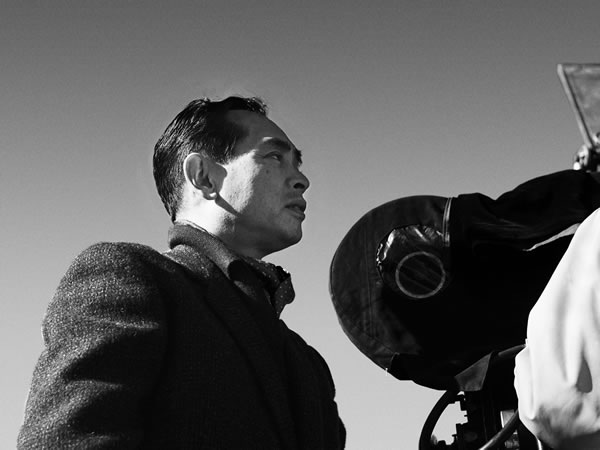
|



|
|
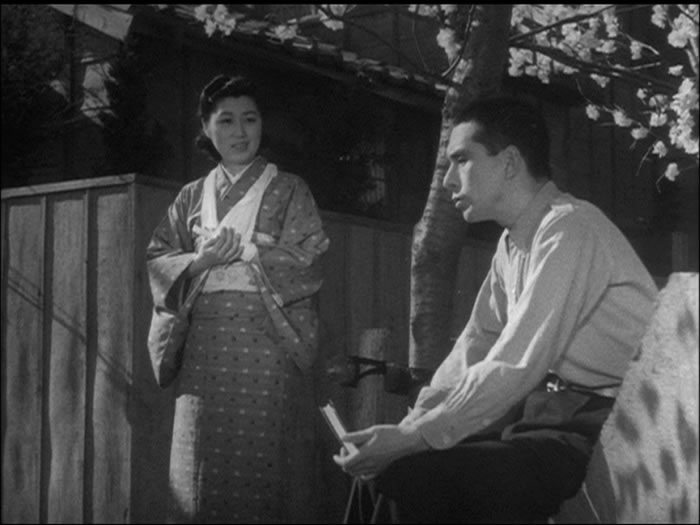
|
|
1944 / 73 min.
*New Print
© 1944 Shochiku Co., Ltd. All rights reserved.
|
|

A depiction of relationships between residents of a town who decide to stay put as the tide of the war takes a turn for the worse and citizens evacuate to the countryside. Although made as government propaganda, KINOSHITA's sympathies remain with the common people.
|
|



|
|
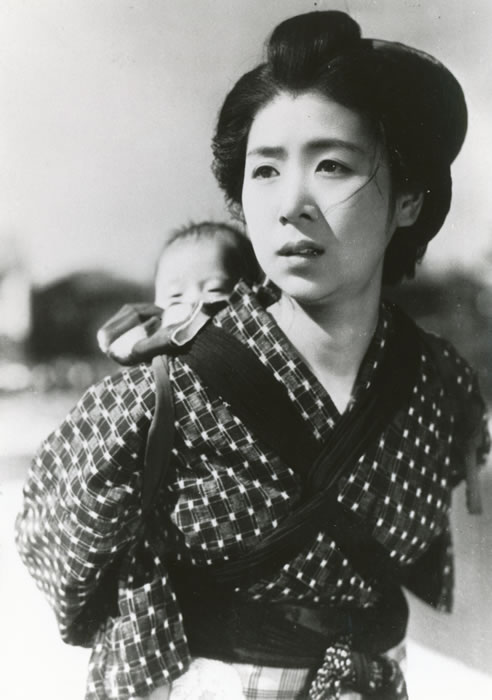
|
|
1944 / 87 min.
© 1944 Shochiku Co., Ltd. All rights reserved.
|
|

Made during WWII at the request of the Department of War, its attention to detail set it far apart from typical propaganda films. The last scene became famous for its outstanding mobile photography.
|
|



|
|
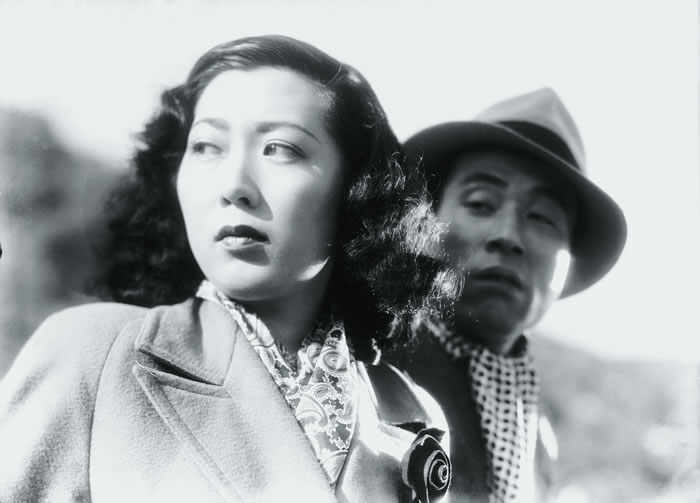
|
|
1948 / 67 min.
*New Print
© 1948 Shochiku Co., Ltd. All rights reserved.
|
|

An ambitious work shot entirely on location that follows a dancing girl as she tries to escape from a persistent rogue and make a new start in life. The sequence in which their duel reaches a climax is breathtaking.
|
|



|
|
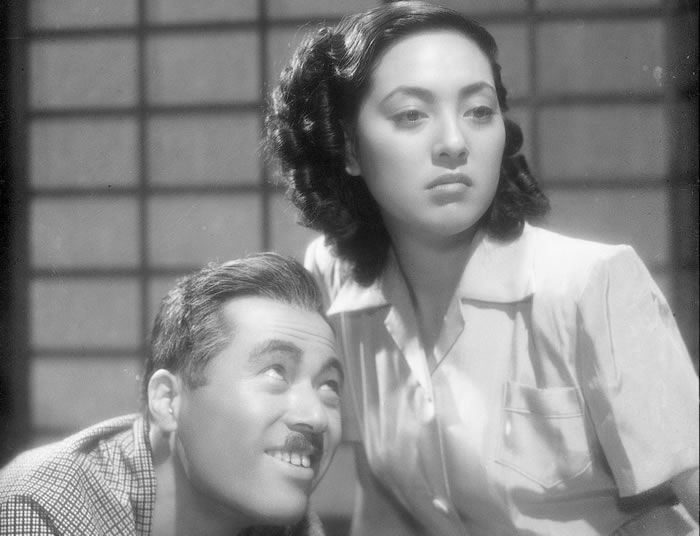
|
|
1948 / 73 min.
© 1948 Shochiku Co., Ltd. All rights reserved.
|
|

A real estate broker and his lover attempt to evict a destitute painter's family by moving into the second floor of their home. A rare pairing of KINOSHITA adapting a script by KUROSAWA Akira.
|
|



|
|
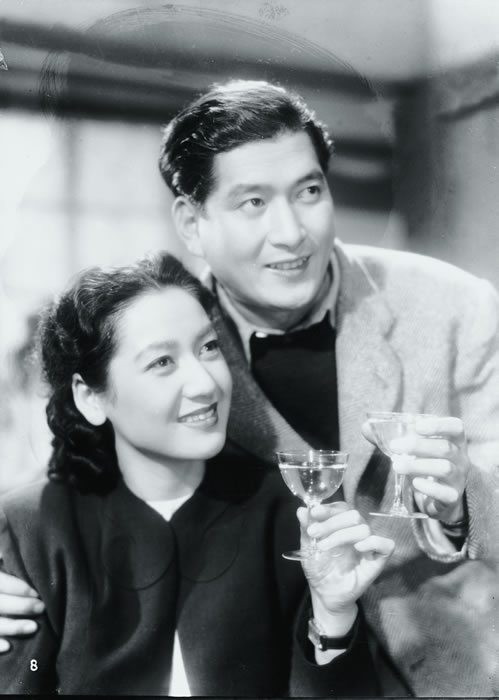
|
|
1949 / 89 min.
© 1949 Shochiku Co., Ltd. All rights reserved.
|
|

The newly affluent manager of an automobile repair company begrudgingly submits to an arranged marriage meeting with the daughter of a formerly noble family. KINOSHITA's smart, nimble direction is dazzling. A cinematic comedy masterpiece.
|
|



|
|
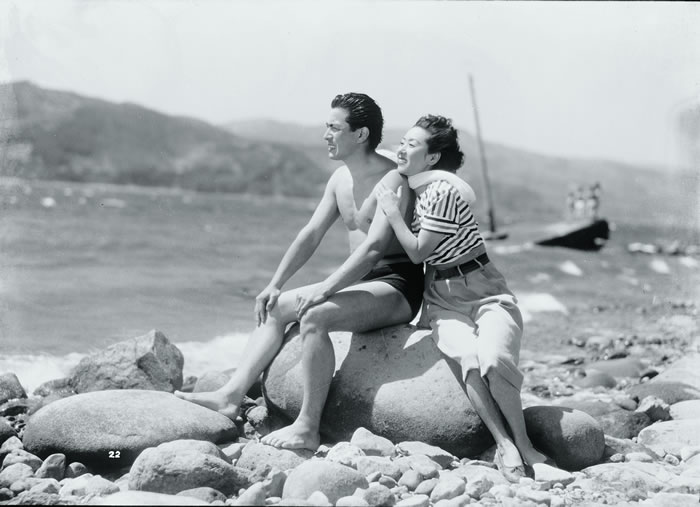
|
|
1950 / 96 min.
*New Print
© 1950 Shochiku Co., Ltd. All rights reserved.
|
|

Melodrama depicting the wife of a man convalescing from illness running his Ginza jewelry store in his stead, while becoming attracted to the young physician in charge of his recovery. TANAKA Kinuyo's first film upon returning from a period in America.
|
|



|
|
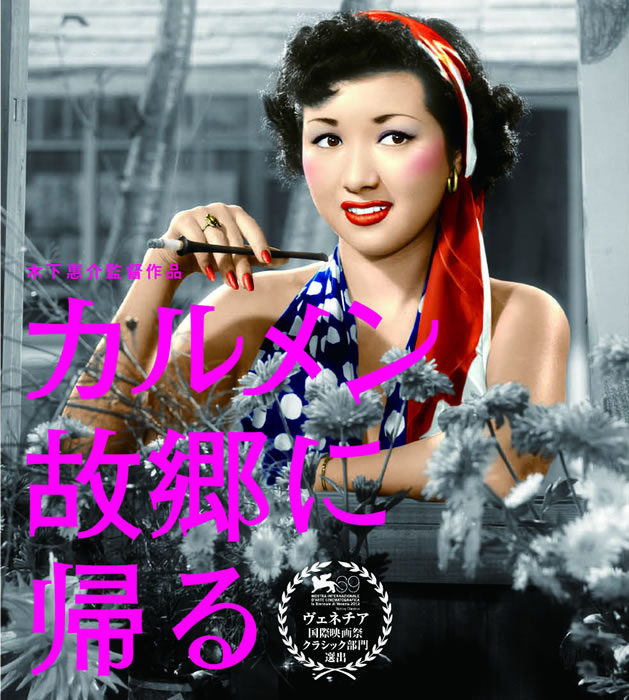
|
|
1951 / 86 min.
*Digitally Restored
© 1951/2012 Shochiku Co., Ltd. All rights reserved.
|
|

Japan's first technicolor film. This heartwarming comedy depicts the commotion that erupts when Kin, a stripper in Tokyo, returns to her hometown with her friend.
|
|



|
|
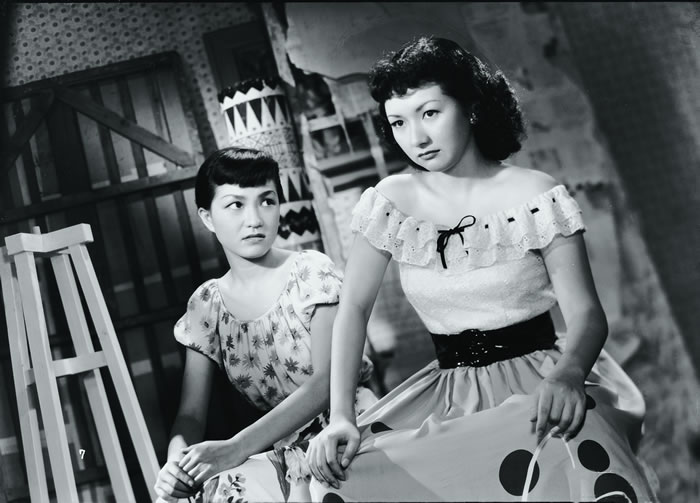
|
|
1952 / 103 min.
© 1952 Shochiku Co., Ltd. All rights reserved.
|
|

This sequel to "Carmen Comes Home" follows the romantic fortunes of stripper Kin, who falls for a womanizing artist. A comedy with a strong vein of social satire.
|
|



|
|
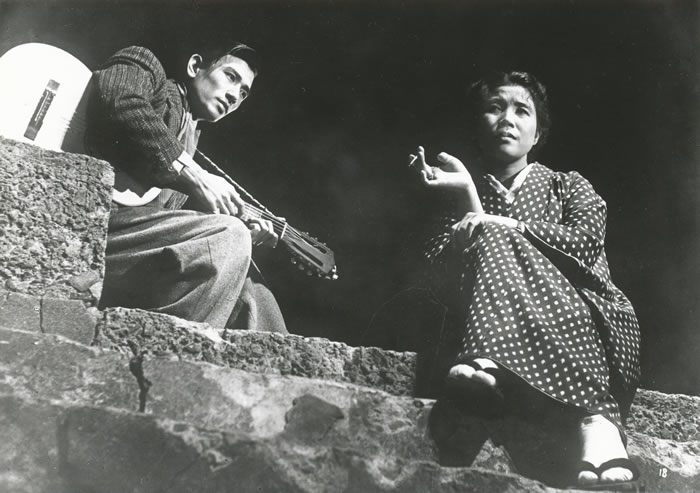
|
|
1953 / 116 min.
© 1953 Shochiku Co., Ltd. All rights reserved.
|
|

A war widow gallantly carries on with life as a maid at a Japanese inn, but is regarded with indifference by her children. Through a style seeking realism, the disconnection between mother and child living amid post-war turmoil is brought into relief.
|
|



|
|
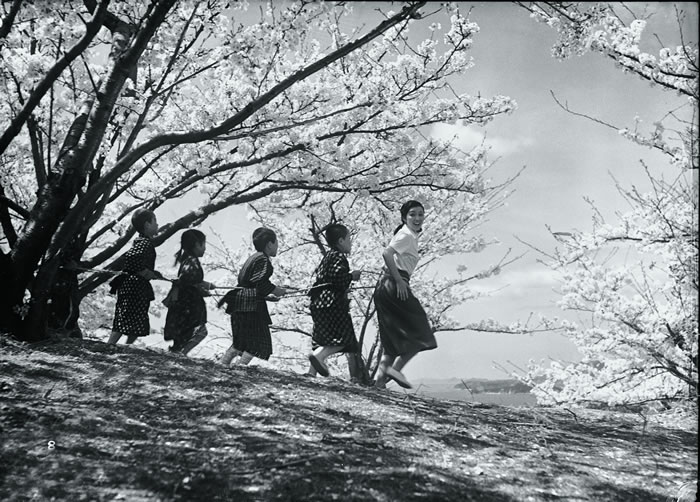
|
|
1954 / 156 min.
© 1954/2007 Shochiku Co., Ltd. All rights reserved.
|
|

An immortal classic about the tribulations of a newly-appointed teacher and her 12 students on the beautiful island of Shodoshima, during a turbulent period spanning World War II and its aftermath. Screens with English and Japanese subtitles.
|
|



|
|
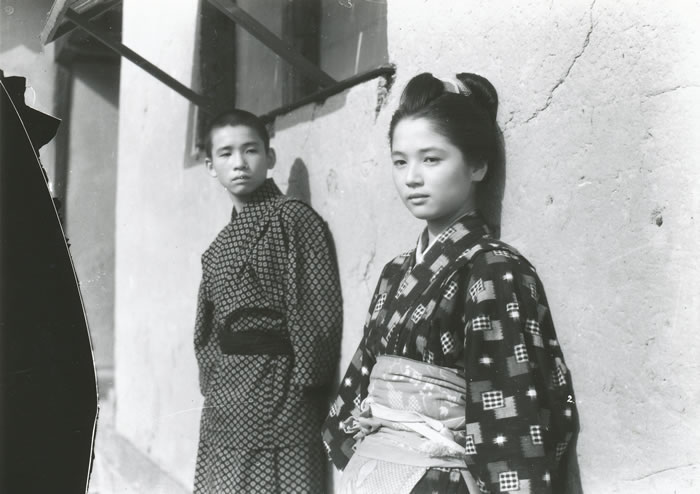
|
|
1955 / 92 min.
© 1955 Shochiku Co., Ltd. All rights reserved.
|
|

Set in the Shinshu region, the development of an unrealized innocent love between childhood friends in a Meiji Era feudal village culture is gently depicted. Innovative techniques for reminiscing scenes and richly poetic long takes yield a striking effect.
|
|



|
|
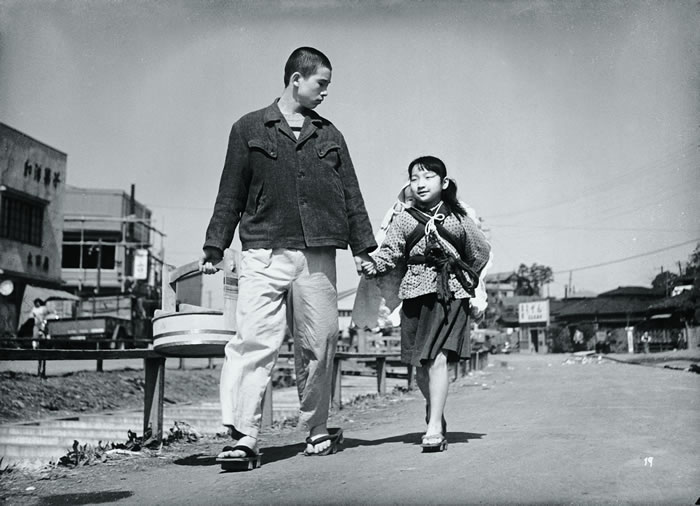
|
|
1956 / 78 min.
*New Print
© 1956 Shochiku Co., Ltd. All rights reserved.
|
|

A young boy, the son of a fishmonger, gives up his dream and determines to continue the family business amid harsh realities, including his father's death. The young boy's quiet resignation leaves a subtle impression in this cinematic gem.
|
|



|
|
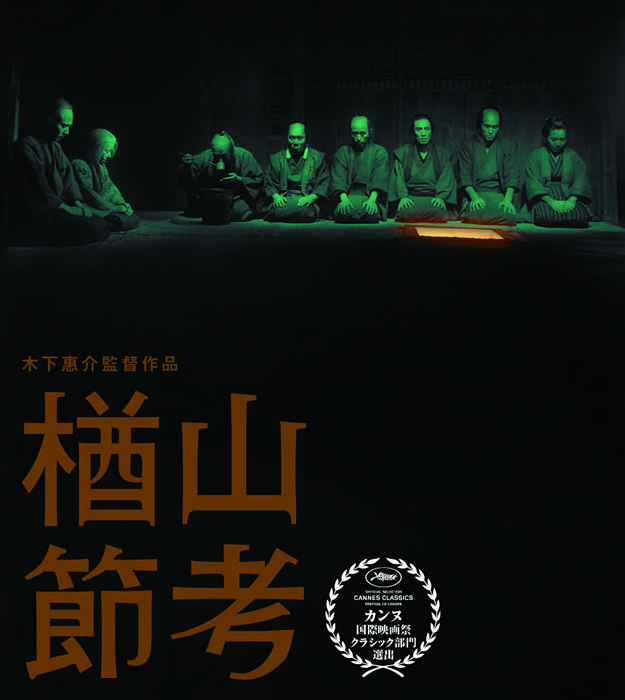
|
|
1958 / 98 min.
*Digitally Restored
© 1958/2012 Shochiku Co., Ltd. All rights reserved.
|
|

The first film adaptation of FUKAZAWA Shichiro's novel, based on the legend of Ubasuteyama. This ambitious classic about karma and the love between a mother and child takes an avant garde approach, utilizing kabuki music and an artificial aesthetic derived from shooting entirely on sets.
|
|



|
|
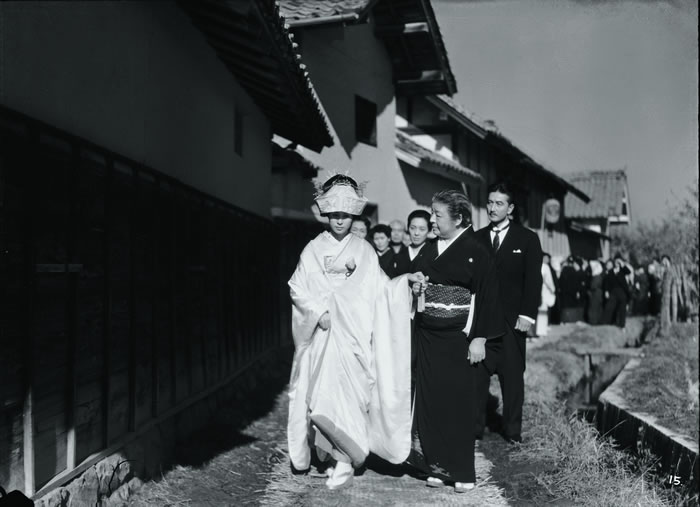
|
|
1959 / 78 min.
© 1959 Shochiku Co., Ltd. All rights reserved.
|
|

Set in a rural village in the Shinshu region, this melodrama about lovers of different social classes spans two generations. It depicts the anguish of people entangled in an old and exclusionary value system, and their escape from it.
|
|



|
|
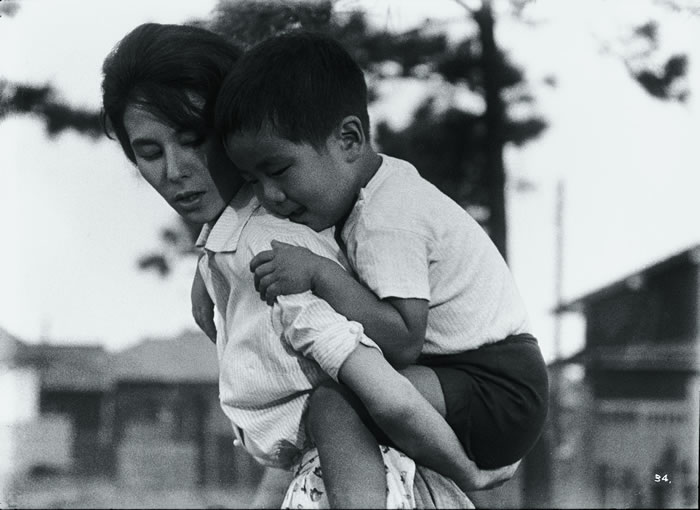
|
|
1959 / 74 min.
© 1959 Shochiku Co., Ltd. All rights reserved.
|
|

When a family who wishes for simple blessings is tormented by unreasonable sorrow and violence, a man concealing a calmness and fury within takes action. A distinct work seemingly a precursor to the heroic chivalry film trend which followed after.
|
|



|
|
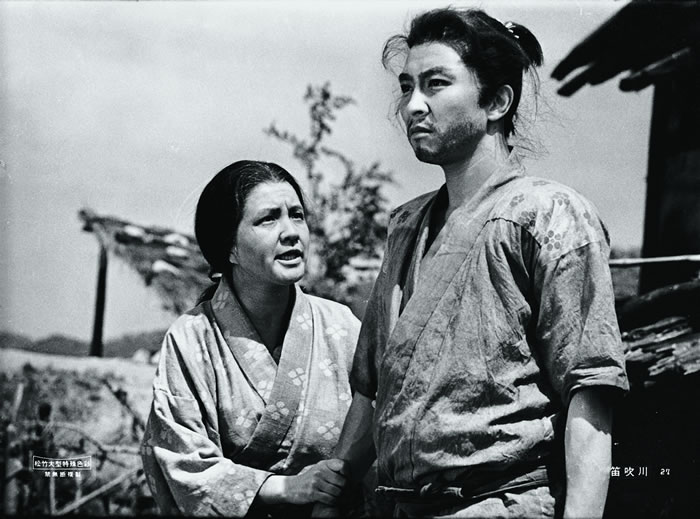
|
|
1960 / 117 min.
© 1960 Shochiku Co., Ltd. All rights reserved.
|
|

An adaptation of a novel by "The Ballad of Narayama" author FUKAZAWA Shichiro. Set in the Warring States period, this unique period film follows the fate of several generations of a poor farming family who live near the Fuefuki River in Kai Province, ruled by the Takeda clan.
|
|



|
|
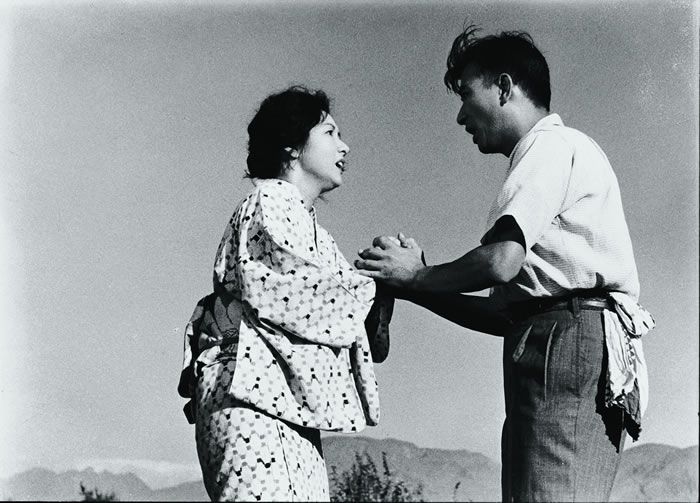
|
|
1961 / 107 min.
© 1961 Shochiku Co., Ltd. All rights reserved.
|
|

Set at the base of Mt. Aso, the film depicts 30 years of hardships for a farmer's daughter and her lover brought about by wartime separation, and a landowner's son with a battlefield leg injury. Nominated for Best Foreign Language Film at the Academy Awards.
|
|



|
|
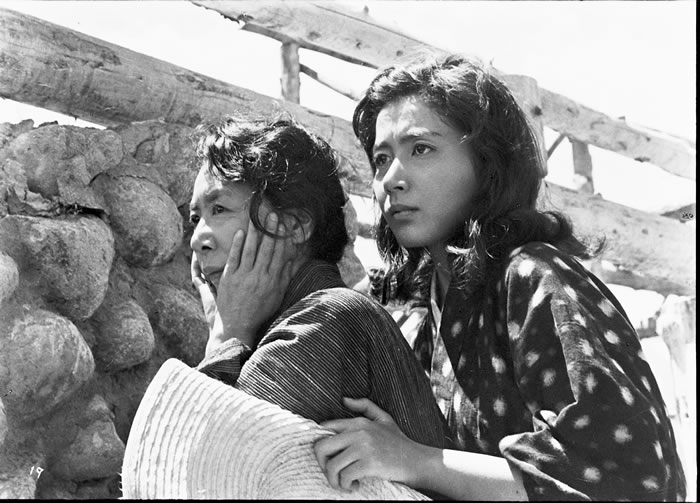
|
|
1963 / 83 min.
*New Print
© 1963 Shochiku Co., Ltd. All rights reserved.
|
|

A masterpiece portraying the circumstances of a dispute that occurs when a marriage proposal by a village landload's son is declined by a family evacuating to Hokkaido during the closing years of the Pacific War.
|
|



|
|
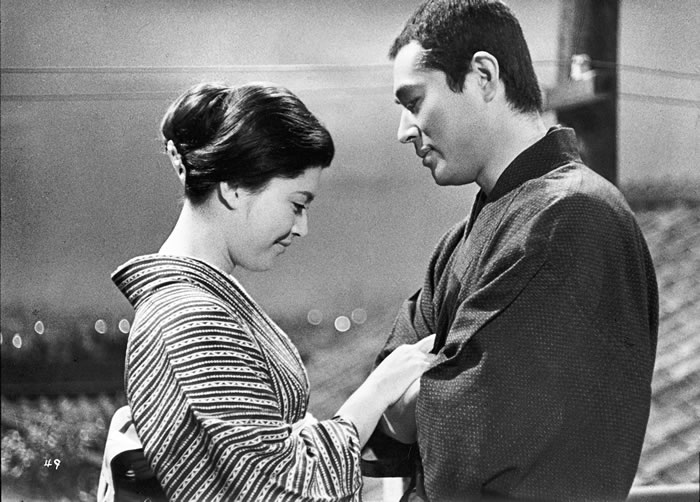
|
|
1964 / 204 min.
© 1964 Shochiku Co., Ltd. All rights reserved.
|
|

An epic literary drama that depicts 60 years of fierce antagonism between a formidably resilient and uninhibited mother and her earnest daughter. It presents the story's historical background in vivid detail, emphasizing the futility of their love-hate relationship.
|
|


Tokyo Culture Creation Project, organized by the Tokyo Metropolitan Government and the Tokyo Metropolitan Foundation for History and Culture in cooperation with arts organizations and NPOs, aims to establish Tokyo as a city of global cultural creativity. The project facilitates involvement of a larger number of people in creation of new culture, by building regional bases for culture creation across the city and offering opportunities for creative experiences to children and young people. Moreover, it creates and globally disseminates new Tokyo culture through organizing international festivals and other diverse events.
|

|

|

|